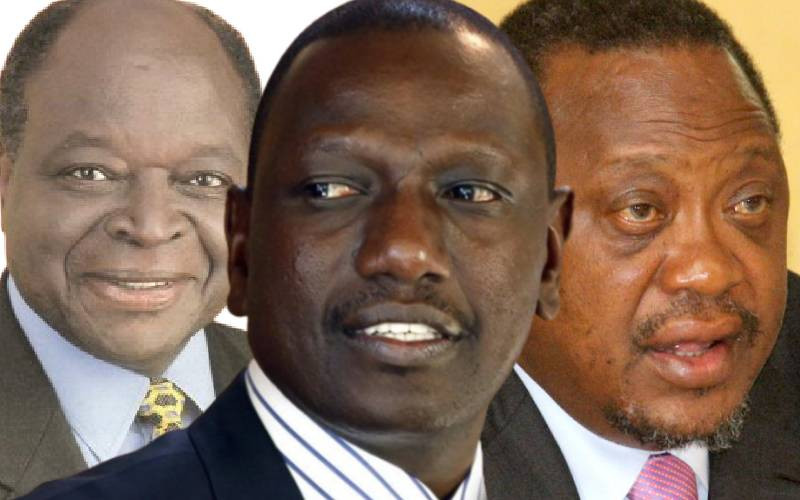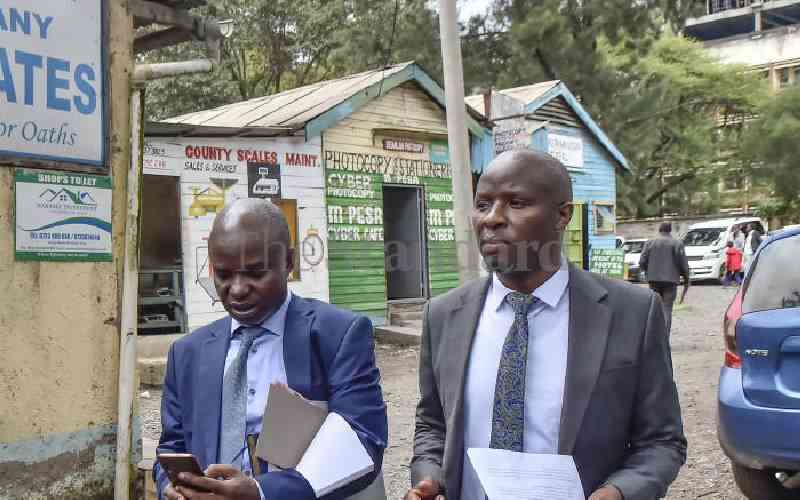In a country where we thrive in pigeonholing, let me start with a disclaimer. This piece is not apologetics for the political hustler movement. It is an attempt to analyse this narrative that has dominated Kenya’s political-social discourse in the last one year and which many believe will influence 2022 politics significantly.
Let me start with definitions. Hustle in Kenya has two meanings, both of which have unfortunately been conflated. The first is hustling as understood and practised by many poor Kenyans, each of who tries various “hustles” (ignore the dictionary meaning) for their daily survival. This is independent of politics. You will find such hustler in any dusty village in Kenya.
The second is the political hustler narrative now associated with the Deputy President. Since the narrative was politically popularised by the Ruto team, it has caught the imagination of Kenyans. Of course the popular assumption is that the dominance of the hustler narrative denotes the DP’s popularity and that hustler is synonymous with the DP’s politics. I believe otherwise. To give credit where it is due, DP Ruto’s campaign team have cleverly managed to colonise and appropriate the entire hustler narrative and convert into their political campaign brand.
Amazingly, supporters of the political hustler narrative fail to see the irony of a multi-billionaire who has been in political leadership for most of his life being the personification of the hustle! The popularity of the hustler narrative and its consequent dominance in politics is easily explainable.
In Kenya’s history, the dominant political narrative has been one of exclusion. Until 2010, exclusion was defined ethnically, leading to the ethnically defined clashes of 2008 which then produced a more inclusive constitution. Since 2010, devolution has equitised resource allocation leaving no region excluded. The national government has also been more equitable in its distribution of development dividends leading to a fairer spread of developmental projects across the country.
Naturally, the impact of this equitisation of development have been felt by the national and regional elite leaving out the majority of the “hustling” population, most of whom are are struggling economically. Devolution has also had the unintended effect of opening the eyes of the excluded to the possibility that they could also be partakers of the development dividend. This has inevitably led to rumblings by the excluded but this time based on class not ethnicity. Unfortunately at a political level, this excluded mass has no leadership. In Kenya’s history, the voice of the excluded was always reposited in the political leader of the opposition. Since the handshake however, this office has no occupant.
Politics abhors a vacuum. The DP has strategically exploited this vacuum and defined himself as the leader of the excluded. Unfortunately, the DP’s detractors have failed to see the hustler narrative except through political lenses.
Consequently they dismiss, demonise and mock “Wheelbarrownomics” failing to recognise that these donations say to the excluded that they have not been forgotten. It is a tragedy that these handouts are being given by leaders who have had decades of opportunity to invest in impactful interventions for the excluded but failed and indeed have no record of caring for the excluded until now, but in a season of discontent, who cares? Those who seek to challenge the political hustler movement must understand the concerns of the excluded and communicate that understanding by initiating vigorous programmes dealing with these concerns.
They must invest in hope. There is no doubt that despite the many misgivings about the Jubilee government, a drive through most of Kenya will evidence major structural interventions in infrastructure, especially feeder roads, water, electricity that have the capacity to transform the economic fortunes of many of the excluded. But there is understandable impatience for “here and now” transformation. Those who oppose the hustler political narrative must respond to this impatience, not just so they win the political argument but because that is the only route to a sustainable Kenya.
If there is a lesson from the popularity of the hustler narrative, it is that there are still too many Kenyans on the outside looking in.
-The writer is an advocate of the High Court of Kenya
 The Standard Group Plc is a
multi-media organization with investments in media platforms spanning newspaper
print operations, television, radio broadcasting, digital and online services. The
Standard Group is recognized as a leading multi-media house in Kenya with a key
influence in matters of national and international interest.
The Standard Group Plc is a
multi-media organization with investments in media platforms spanning newspaper
print operations, television, radio broadcasting, digital and online services. The
Standard Group is recognized as a leading multi-media house in Kenya with a key
influence in matters of national and international interest.
 The Standard Group Plc is a
multi-media organization with investments in media platforms spanning newspaper
print operations, television, radio broadcasting, digital and online services. The
Standard Group is recognized as a leading multi-media house in Kenya with a key
influence in matters of national and international interest.
The Standard Group Plc is a
multi-media organization with investments in media platforms spanning newspaper
print operations, television, radio broadcasting, digital and online services. The
Standard Group is recognized as a leading multi-media house in Kenya with a key
influence in matters of national and international interest.







